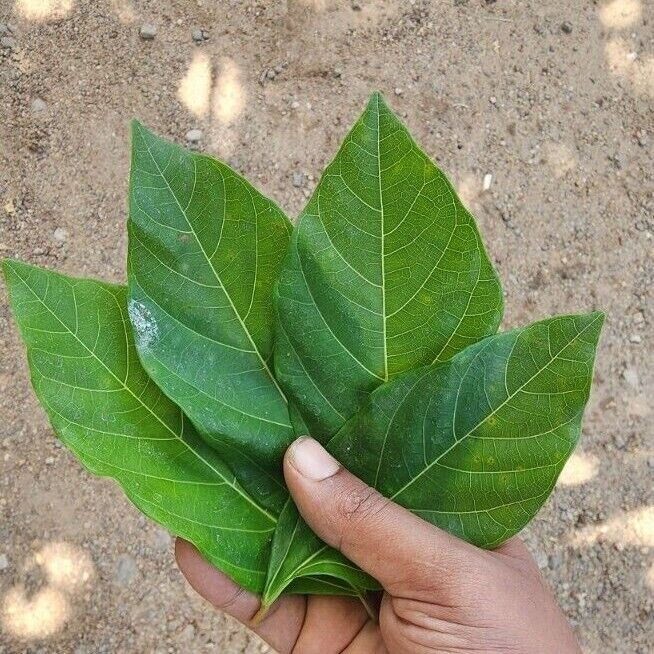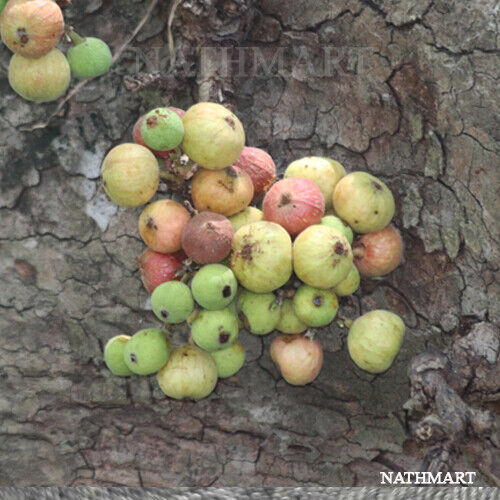Blog
Udumbara Tree Benefits: The Sacred Power of Gular (Ficus racemosa)

In the bustling markets of South Asia, you might find vendors selling small, rounded figs with a slightly earthy, sweet taste. In ancient temples, you’ll see depictions of a tree whose “flowering” is said to herald auspicious times. In Ayurvedic texts, its name is uttered with reverence.
This is the Udumbara Tree, known scientifically as Ficus racemosa. To many, it’s the Cluster Fig, named for its distinctive habit of bearing fruit directly on its trunk and branches. In India, it’s widely known as Gular, and here in Sri Lanka, we cherish it as Attikka (අට්ටික්කා).
More than just a fruit-bearing tree, Udumbara is a living legend—a symbol of prosperity, spirituality, and profound healing. For millennia, its leaves, bark, fruit, and even its unique “milk” have been indispensable tools in traditional medicine, particularly Ayurveda.
Today, we’re going beyond the myths to explore the incredible, scientifically-supported health benefits of this sacred tree and why the Udumbara tree might just be the wellness secret you’ve been searching for.
A Tree of Divinity and Diverse Names: Connecting Cultures and Healing
The global tapestry of names for Ficus racemosa highlights its deep cultural and medicinal significance:
- Ayurvedic/Sanskrit Name: Udumbara – This name resonates with spiritual and wellness seekers globally, connecting it to ancient wisdom.
- Common Indian Name: Gular – Widely recognized across the Indian subcontinent for its medicinal and culinary uses.
- Botanical Name: Ficus racemosa – The scientific identifier for researchers and botanists worldwide.
- English Names: Cluster Fig, Red River Fig, Indian Fig Tree.
- Sinhala (Sri Lanka): Attikka (අට්ටික්කා) – Our local term, steeped in traditional remedies.
- Hindi: Gular (गूलर)
- Malayalam: Atthi (അത്തി)
- Tamil: Athi (அத்தி)
This rich array of names underscores its omnipresence in the lives and healing practices of countless people.
The Heart of Wellness: Udumbara’s Key Health Benefits

In Ayurveda, Udumbara is celebrated for its Kashaya (astringent) and Sheeta (cooling) properties, making it a powerful ally for various conditions.
1. A Natural Champion for Digestive Health 🌿
One of the most prominent traditional uses of Udumbara, especially its bark and fruit, is to support a healthy digestive system. Its astringent nature is incredibly beneficial:
- Manages Diarrhea and Dysentery: The bark and unripe fruit are traditionally used to help firm up stools and reduce the frequency of bowel movements.
- Soothes Ulcers: It’s believed to have a protective effect on the gastrointestinal lining, offering relief from ulcers and inflammation in the stomach and intestines.
- Relieves Indigestion: Udumbara can help improve overall digestion, reducing discomfort like bloating and gas.
- Detoxification: It aids in cleansing the digestive tract and promoting the expulsion of toxins.
The leaves of the Cluster Fig are also potent, often used in decoctions to harness these digestive benefits.
2. Blood Sugar Support: A Sweet Solution from Nature
Udumbara has garnered significant attention, particularly in recent years, for its traditional role in helping to maintain healthy blood sugar levels. This is a critical benefit in today’s world.
- Bark and Leaves: Extracts from the bark and leaves are traditionally used in Ayurvedic preparations for this purpose. They are believed to possess compounds that can help regulate glucose metabolism.
- Antioxidant Power: Its rich antioxidant profile also plays a role in protecting cells, including those involved in insulin production and sensitivity.
3. Potent Anti-inflammatory and Wound Healing Properties
The Udumbara tree is a natural first-aid kit. Its astringent and anti-inflammatory properties make it highly effective for:
- Wound Care: The milky latex from the bark is traditionally applied to cuts, wounds, and boils to stop bleeding, prevent infection, and accelerate healing.
- Skin Conditions: Pastes and decoctions are used for various skin ailments due to their soothing and antiseptic effects.
- Internal Inflammation: As an internal remedy, it helps reduce inflammation throughout the body.
4. Immune System Booster 💪
Rich in various phytochemicals and antioxidants, Udumbara contributes to a robust immune system. Regular consumption, traditionally, has been linked to increased resistance against infections and overall vitality.
5. Respiratory Comfort

Traditional remedies using Udumbara also extend to respiratory health. It’s used as an expectorant to help clear mucus from the airways, providing relief from coughs and congestion.
6. Astringent for Oral Health
The bark of the Cluster Fig is sometimes used to make mouthwashes or for chewing, traditionally believed to strengthen gums, reduce bad breath, and aid in various oral health issues due to its astringent properties.
Udumbara in Practice: How to Harness its Power
While the fresh fruit is a delicious seasonal treat, the medicinal parts most often utilized are the bark, leaves, and unripe fruit, typically prepared as:
- Decoctions: Boiling the bark or leaves in water to create a potent herbal tea.
- Powders: Dried bark or leaves ground into a fine powder for easier consumption.
- Pastes: Made from fresh leaves or bark for topical application.
Remember: If you are considering incorporating Udumbara into your health regimen, especially for specific conditions like blood sugar management, always consult with a qualified healthcare professional or an experienced Ayurvedic practitioner.
The Evergreen Legacy of the Cluster Fig
The Udumbara Tree, with its deep roots in spirituality and its widespread presence in traditional medicine as Gular or Attikka, truly embodies the wisdom of nature. Its powerful ability to support digestion, help manage blood sugar, soothe inflammation, and heal the body makes it a timeless treasure. As we rediscover and appreciate these ancient remedies, the Cluster Fig stands tall—a silent guardian, offering its profound healing gifts to the world.
Disclaimer: This article is for informational and educational purposes only and does not constitute medical advice. The information provided is based on traditional uses and available scientific literature but is not a substitute for professional medical consultation, diagnosis, or treatment. Please consult with a qualified healthcare provider before using any herbal product, especially if you have a pre-existing medical condition, are pregnant or nursing, or are taking medication.


Discover more from Nath Mart
Subscribe to get the latest posts sent to your email.
